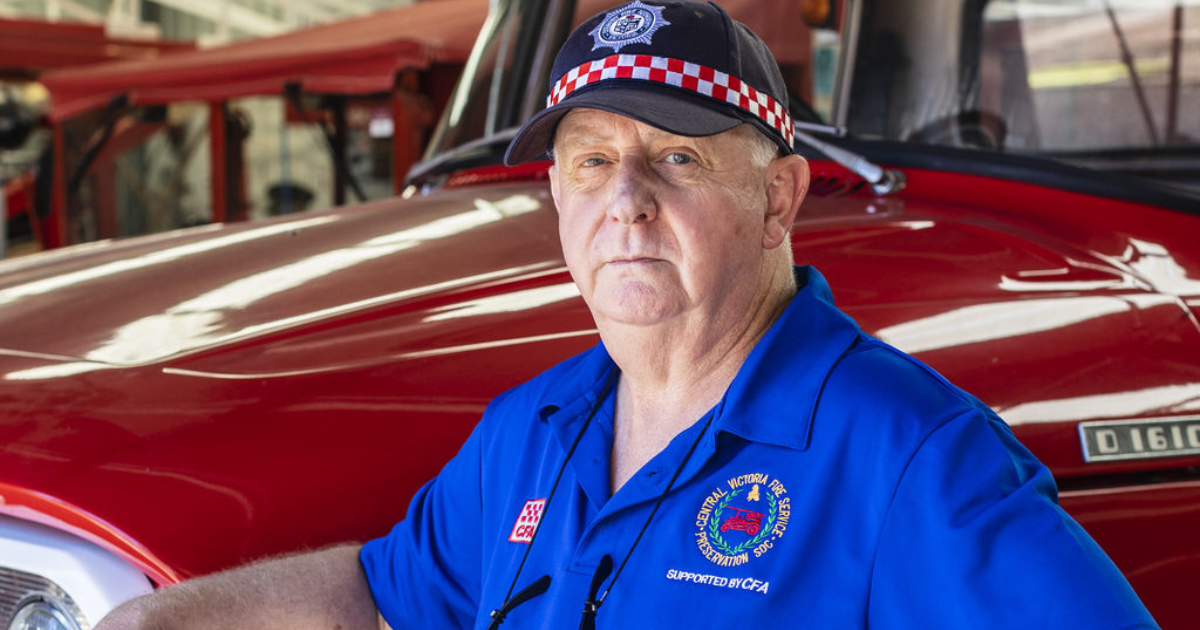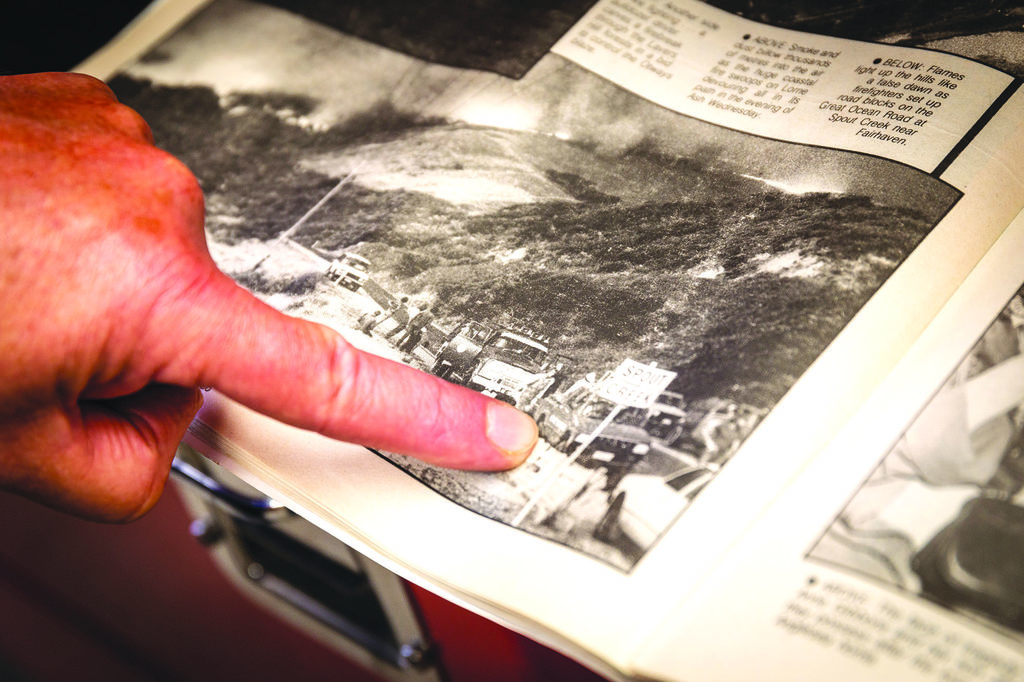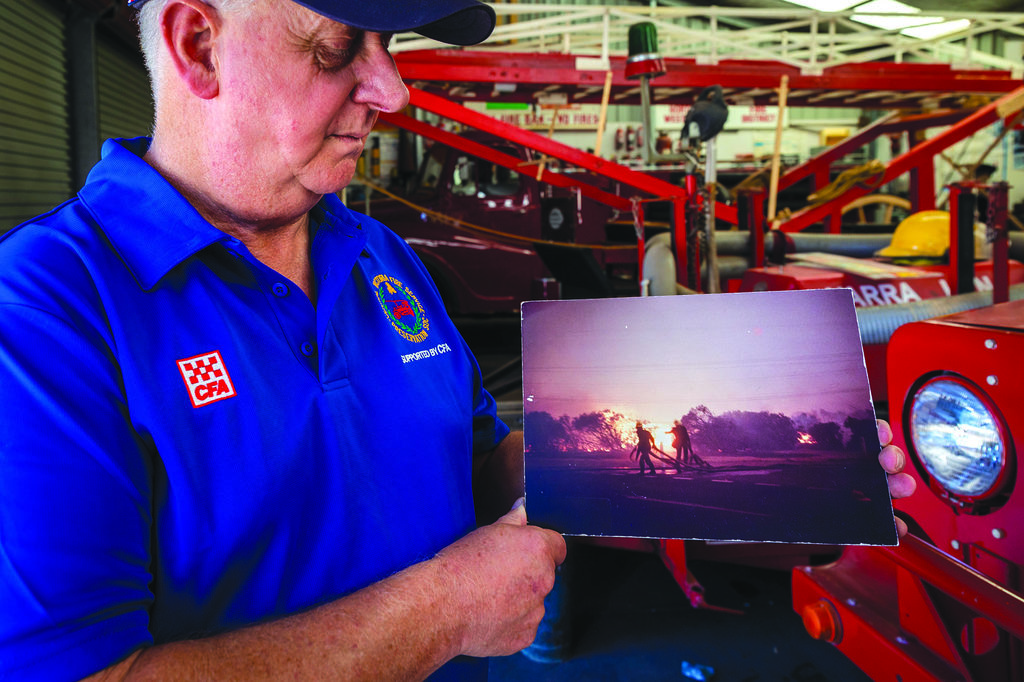Snap decision captures fascinating fire view

Former Geelong firefighter Tim Fitzgerald is a veteran of Ash Wednesday, and later Black Saturday. Photos: STEVE WOMERSLEY
During four decades of service, Victorian firefighter Tim Fitzgerald battled some of the state’s most devastating bushfires.
But he says there’s only one day that made him scared.
The long-serving Country Fire Authority member, now of Bendigo, retired in 2018 as a veteran of two of the state’s deadliest-ever campaigns: Ash Wednesday 1983 and Black Saturday, 2009.
Mr Fitzgerald was 26 on the day he says was the hardest of his career – and fortuitously became one of the event’s crucial record-keepers through his film camera.
Copies of his personal collection are now with the Lorne Historical Society and provide a priceless first-hand account of what local firefighters experienced on the front line.
Mr Fitzgerald was stationed at Geelong West fire brigade on February 16, 1983.
He responded to a callout from Lorne at around 4pm as the fire tore through the Otways towards the coast.
His pumper reached Spout Creek, near Eastern View, before discovering a nearby bridge at Grassy Creek had caught fire.
It was there that Mr Fitzgerald drew the camera that would make him an inadvertent historian

“Someone once told me if you can’t do anything, take a photo. So that’s what I did.”
The relative peace did not last long.
A plume of smoke that was drifting out to sea came to a halt, and about 6.30pm Lorne’s fire captain, the late Walter “Wally” Grant, informed crews of a dramatic wind change that would send the fire east.
Mr Fitzgerald and the Geelong crews raced the fire along the Great Ocean Road, where he said flames were soaring over radio towers and moving 100 metres in about five seconds.
He likened the combined roar of wind and fire to “10 jumbo jets coming overhead”.
“It should have been still daylight. The only things you could see where the lights or the truck in front of you and that spotfires around you, that was it.
“The sound of the wind as it came through Fairhaven and when we got into Aireys was just spine-tingling.”
Mr Fitzgerald speculates that the wind caused extensive damage to properties before flames could reach the towns.

“There was roofing iron flying everywhere. At one point, the only way to survive was actually sitting inside your vehicle or lying under it.”
The fight lasted through the night at Aireys Inlet and Anglesea, before a decision at dawn the following morning that crews should continue east to defend Torquay. A turn in weather meant the fire never reached the town.
Mr Fitzgerald was back on duty for his afternoon shift at Geelong later that day.
While the event didn’t stop him from a distinguished career in the CFA, he admits it had lasting effects.
“Particularly on a bad day when there’s high winds, it’s just the noise of the wind, the way it whistles through the power lines. It’s jarring on you.”
Mr Fitzgerald and other campaign veterans intend to return to the Surf Coast to commemorate Ash Wednesday for its 40th anniversary on Thursday.

















